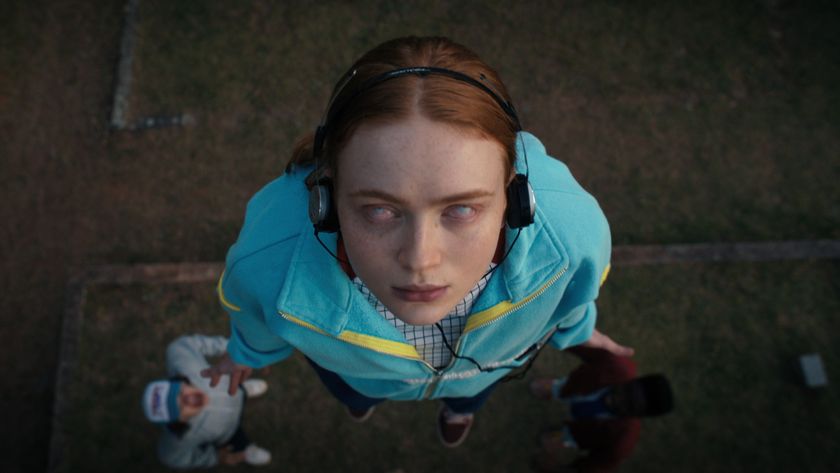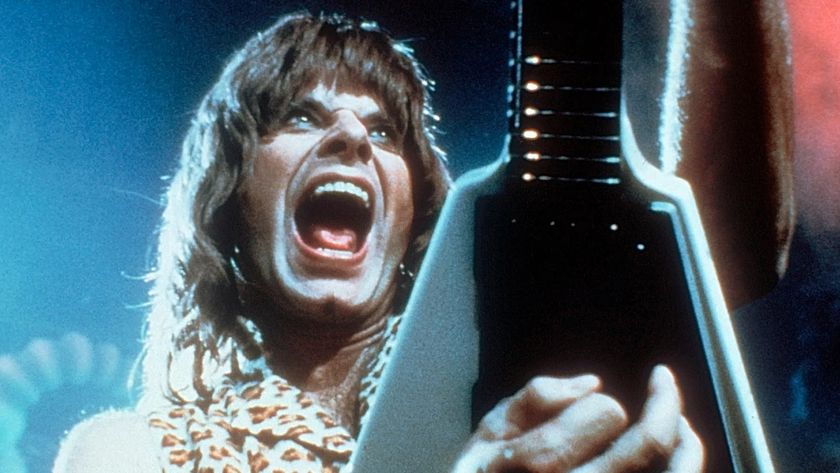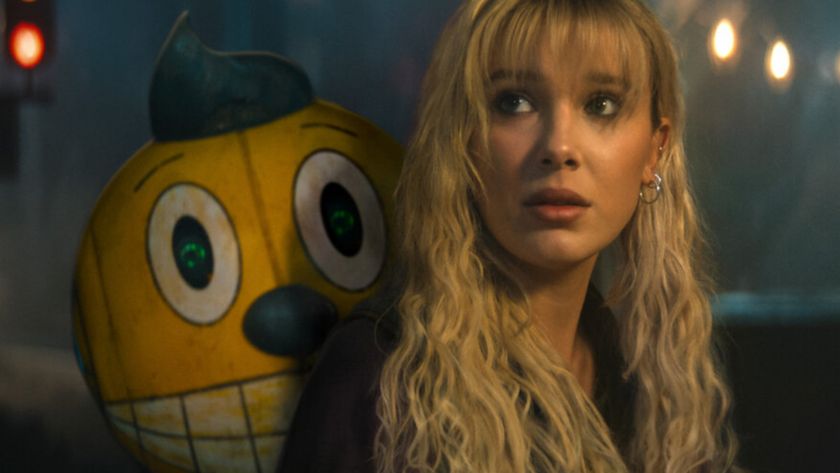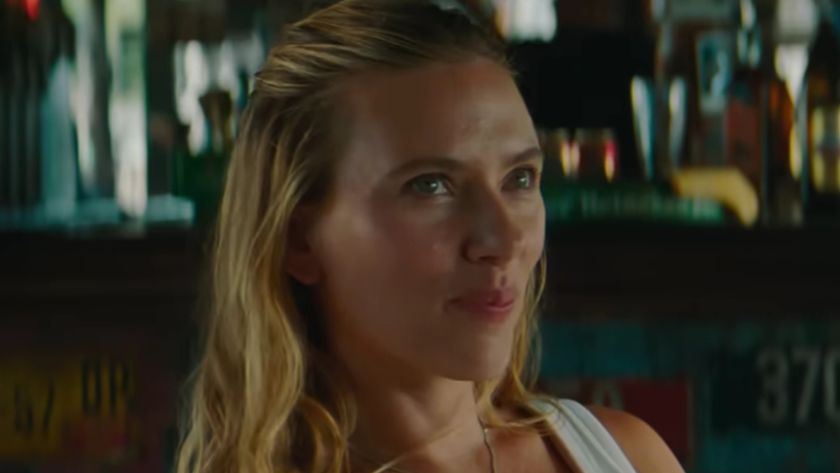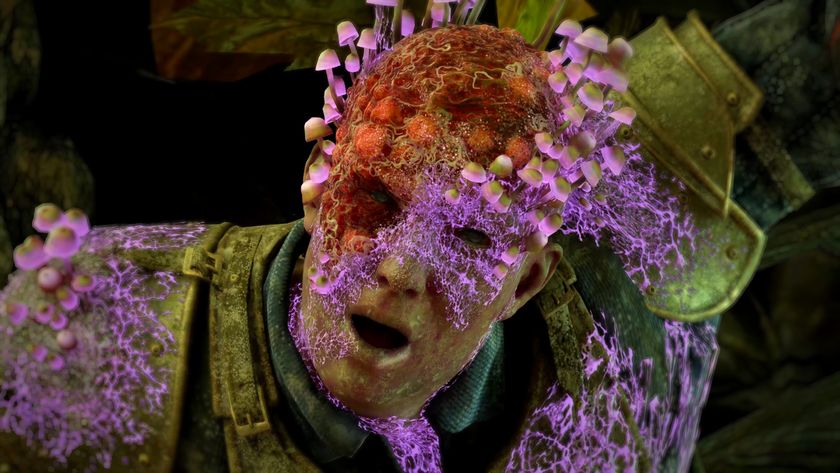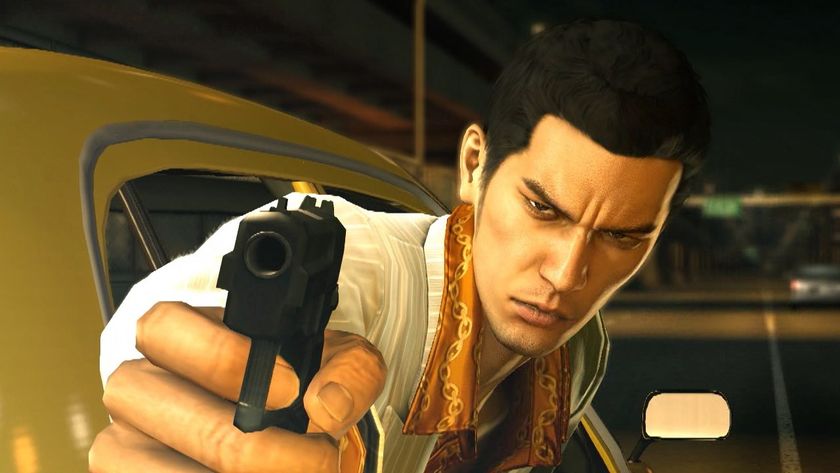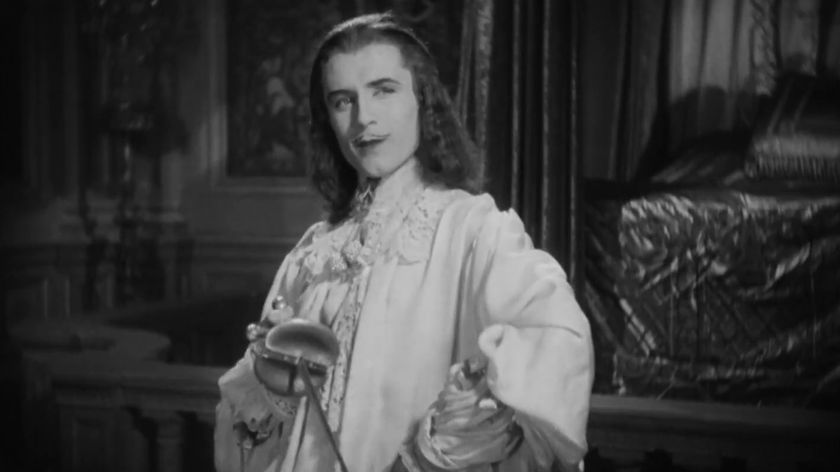How to pretend you've seen the 30 best movies ever made
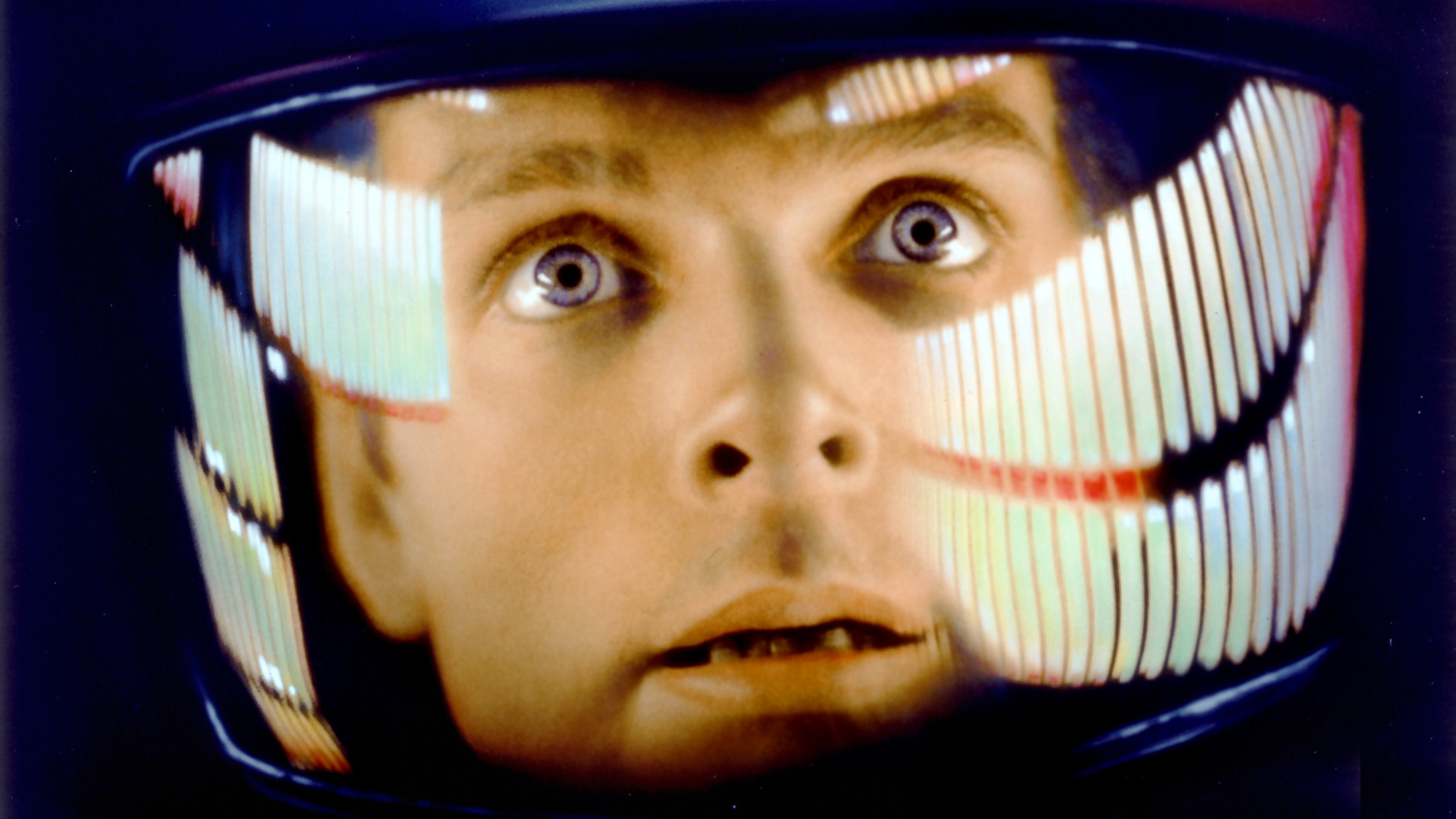
MOTHER OF ALL SPOILERS: We’ll be spoiling the 30 best movies ever made. If you see the title of a movie you’re planning to watch, for the love of all that is holy DO NOT READ THE ENTRY. You have been warned.
We’ve all experienced it before. Someone tells you to watch a movie, saying it’s the best one ever made, and for a full two minutes (it feels longer than it sounds, trust me) they rant about how it’s a marvel. Then you go home and promptly never watch it. Next time they ask you if you’ve seen it and you politely say no. And again the next month. And the next. And the next. And oh god this is getting embarrassing.
To save you the trouble of sitting through [insert famous movie title here, which you clearly don’t want to watch], we’ve created a bluffer’s guide to the best 30 movies ever made, and therefore the ones people are most likely to pester you to see. Filled with plot details, key bits to mention to fool people that you’ve enjoyed the movie, and a quote to roll out when they start to get suspicious, we’ve done all the hard work for you. You’re welcome.
Oh, and do you really need to be told? There are massive spoilers ahead.
Apocalypse Now (1979)
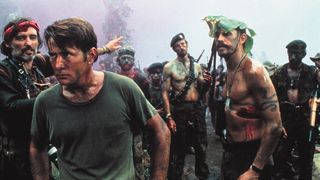
Colonel Walter E. Kurtz (Marlon Brando) has gone mad, deep in the heart of Cambodia, and the US Army sends Captain Benjamin L. Willard (Martin Sheen) to find and terminate Kurtz "with extreme prejudice". Willard initially keeps his mission secret as he heads upriver, his accompanying Naval guard growing increasingly distrustful toward him as they find themselves under attack by the Viet Cong, their numbers dwindling rapidly the further they push on. Eventually, they reach Kurtz' encampment, where Kurtz captures and tortures Willard, releases him, then espouses his dark philosophy on war. In the film's final moments, Willard kills Kurtz with a machete and speeds away on a boat back downriver.
Key things to mention: Apocalypse Now is more or less a film adaptation of the Joseph Conrad novel Heart of Darkness, only set during the Vietnam War. Harrison Ford has a cameo right at the beginning as Colonel G. Lucas who gives Willard his orders, named after director Francis Ford Coppola's friend and colleague, George Lucas. The film also went through a litany of production troubles (including a heart attack suffered by the film's lead, Martin Sheen), with Coppola reflecting: "We were in the jungle, there were too many of us, we had access to too much money, too much equipment and little by little, we went insane."
Memorable quote: "I love the smell of napalm in the morning."
David Roberts
Sign up for the Total Film Newsletter
Bringing all the latest movie news, features, and reviews to your inbox
The Usual Suspects (1995)
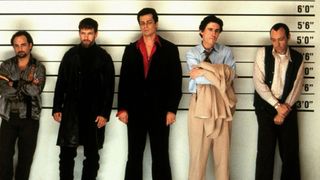
Five criminals flung together by chance. Only one has survived a massacre onboard a boat containing cargo belonging to Keyser Söze, an elusive, seemingly all-powerful underworld crime boss. Over the course of the film the only man (Roger ‘Verbal’ Kint; Kevin Spacey) left narrates, with a limp and other physical disabilities, their dealings with the crimelord to a Detective in hopes of helping the police catch him. Verbal’s erratic, tangential narration tells how their job becomes increasingly complicated in the lead up to the boat bloodbath. For the first time ever, Söze is within the police’s grasp… and he’s closer than you’d think. Ahem. Verbal is Söze. Weaving an intricate plot out of the bits he could see in the detective’s office, it’s ambiguous how much of the tale is made up and how much is true. At first limping out of the police station, Söze shakes off his Verbal disguise and strides away, using what was his disabled arm to light up a cigarette before driving away.
Key things to mention: Fred Fenster’s (Benico Del Toro) bizarre slack-jawed speech (seriously, good luck trying to understand him), and the five suspects’ giggling in the line-up scene. Oh, and Kint is Soze, but you totally saw it coming.
Memorable quote: “The greatest trick the Devil ever pulled was convincing the world he didn't exist.”
Zoe Delahunty-Light
Citizen Kane (1941)

“Rosebud…” This first line of the famed film is the last one uttered by fictional newspaper magnate Charles Foster Kane (Orson Welles) before his death. A reporter charged with discovering the story behind that final word learns all about Kane’s life from friend and colleague Jedediah Leland (Joseph Cotten) and his mistress Susan Alexander (Dorothy Comingore). Charting his poverty-stricken childhood and the turning point of a gold mine being discovered on the property, up to the decisions he made as a tabloid newspaper tycoon, you see just how deluded Kane became with his own power. He paid a steep price for it. That last word, “Rosebud” ends up being the name of his childhood sleigh - seems all Kane wanted was a return to the simplicity of his past.
Key things to mention: For this one, talk Citizen Kane’s techniques. There’s Welles’ use of optical illusions to demonstrate power. Or the invisible wipe in the opera debut. Or his groundbreaking use of deep focus, which demands intentional staging and framing in each shot. Also name-drop William Randolph Hearst, the real-life media mogul who was an inspiration for the Kane character.
Memorable quote: “People will think what I tell them to think.”
Anna Washenko
Psycho (1960)
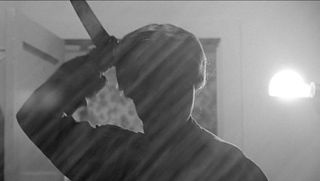
Marion Crane (Janet Leigh) steals a bunch of cash from her boss, flees the city of Phoenix, and ends up staying the night at the Bates Motel. The owner, Norman Bates (Anthony Perkins), stabs her to death in the shower in one of cinema’s most famous scenes before dumping her body in the nearby lake. The rest is the story of various characters looking for Marion Crane, and discovering the grizzly secret lurking in Norman’s house on the hill that reveals a very unique relationship between the boy and his mother. Oh, you want to know what it is? Bates dresses up as his mother to commit his crimes, and keeps her dessicated corpse in the house.
Key things to mention: The money is just a McGuffin, isn’t it? What’s the deal with that creepy police officer? Did you spot the Hitchcock cameo when Marion is leaving Phoenix? Did you know the stabbing noise from the shower scene was from someone sticking a knife in a grapefruit? You do now.
Memorable quote: “It's not like my mother is a maniac or a raving thing. She just goes a little mad sometimes. We all go a little mad sometimes. Haven't you?”
Andy Hartup
2001: A Space Odyssey (1968)
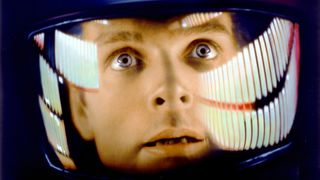
Millions of years in the past, prehistoric ape-men encounter a mysterious, perfectly rectangular black monolith, coincidentally developing the ability to use tools at the same time. Flash forward to modern man, and a similar monolith is found buried on the moon. Investigations are made, but no-one can work out what it does. 18 months later, astronaut Dave Bowman (Keir Dullea) and his crew are journeying to Jupiter on a mission they do not yet know the true purpose of. As they attempt to find out, their apparently infallible supercomputer HAL-9000 (Douglas Rain) progressively kills them off, until only Bowman is left. Dave shuts HAL down and takes a pod to Jupiter. Surprise! There's’ a monolith orbiting the planet. Dave shoots down a hallucinogenic colour-tunnel, sees himself rapidly aging in a highly civilised neoclassical bedroom, and eventually becomes a magic glowing space-baby, floating close by to Earth.
Key things to mention: 2001: A Space Odyssey contains multiple space-based and zero-G shots that just seem impossible given the year it was made. The film is dialogue-free for its opening and closing 20 minutes, and while its ending is incredibly abstract and open to interpretation, it’s all about benevolent, ancient alien civilisation helping mankind evolve past its current limits. Probably. Also, astronomer and all-round cool-guy Carl Sagan consulted on how to represent the aliens, and the film was developed in tandem with Arthur C. Clarke’s novel rather than based on it.
Memorable quote: “I’m sorry, Dave. I’m afraid I can’t do that.”
David Houghton
Pulp Fiction (1994)
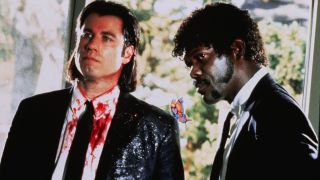
Telling several interconnected stories simultaneously and jumping back and forth in the time line, Pulp Fiction follows the events of two mobster hitmen, a boxer, a gangster’s wife, and two diner robbers. Butch the boxer (Bruce Willis) is paid to take a dive in the gangster Wallace’s (Ving Rhames) boxing match but double-crosses him and is hunted down by the gangster’s associates. Two mobster hitmen Vincent and Jules (John Travolta and Samuel L. Jackson) race to get a mysterious briefcase back to the same Wallace. Along the way Vincent has to escort Mia Wallace, the gangster’s wife, for an evening while Wallace is out of town, but everything goes horribly wrong. When she snorts his heroin, mistaking it for cocaine, he has to shove a hypodermic needle of adrenaline through her breastbone. Then sent to kill Butch, Vincent goes to the loo after breaking into the boxer’s house, which Butch has returned to to fetch his dad’s gold watch. Butch finds Vincent’s gun on the sideboard, and kills him. He then flees on a motorbike after he escapes from being held hostage by some BSDM kidnappers, who have also taken and raped Wallace. Wallace lets Butch go in thanks for freeing him.
Key things to mention: Jules reciting Ezekiel 25:17; Samuel L. Jackson’s ‘Badass Motherfucker’ wallet (which you can actually buy); and the shock factor of Mia getting a hypodermic needle shoved through her breastbone. Ouch.
Memorable quote: “What does Marsellus Wallace look like? Does he look like a bitch?”
Zoe Delahunty-Light
Raging Bull (1981)
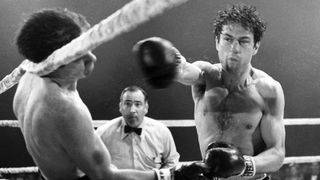
Martin Scorsese's biographical boxing flick charts the rise and fall of Jake LaMotta. Robert DeNiro’s performance as Italian-American boxer has become the yardstick by which all other method actors are measured: production was closed down for four months so DeNiro could binge eat his way around Europe, gaining 60 pounds for the scenes featuring the older, fatter LaMotta. It’s more than just a sports film, too. Instead, it’s an examination of self-destructive jealousy, anger and obsession, shot in bleak black and white. It’s widely regarded as Scorsese's best film, and critic Roger Ebert declared it the best film of the 1980’s. Take that, Mac and Me.
Key things to mention: Don’t use the bit about De Niro gaining weight. Everybody knows that. Instead, go with Raging Bull’s boxing anecdote: LaMotta taught DeNiro to box, who had three middleweight fights, two of which he won. LaMotta even said De Niro was one of his top 20 best middleweight boxers of all time.
Memorable quote: “I coulda had class. I coulda been a contender. I coulda been somebody, instead of a bum, which is what I am, let's face it” Throw in that this is a direct quote from On The Waterfront for extra bluff-o-points.
Matt Elliott
Taxi Driver (1976)
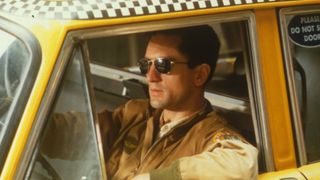
A dark, disturbing look at the loneliness of nocturnal living in New York City, Taxi Driver cemented Martin Scorsese and Robert DeNiro as titans of cinema early on in their careers. Vietnam War veteran Travis Bickle (DeNiro) takes up a thankless job as a cab driver to make the most of his insomnia, becoming more and more unhinged and repulsed by the "scum" walking the streets of the Big Apple. It's only a matter of time until he does something drastic, shooting pimp Matthew ‘Sport’ Higgins (Harvey Keitel) who becomes a target of all his righteous anger. Why? He falls for one of Higgins’ girls, Iris (Jodie Foster), who is working as a child prostitute. Bickle’s actions against Higgins and his associates is reported positively in the press, and he’s hailed - ironically - as a hero in the movie’s final scenes.
Key things to mention: Just how frightening the typically lovable DeNiro can be, especially as he becomes increasingly disturbed while passing time in his disheveled apartment. Practicing push-ups and pull-ups is perfectly normal; clenching your fist over the open flame of your stove top, not so much.
Memorable quote: "You talkin' to me? You talkin' to me?"
Lucas Sullivan
Casablanca (1942)
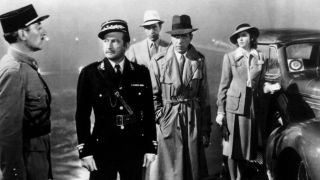
Set in 1941, it’s the tale of US expat Rick Blaine (Humphrey Bogart), proprietor of a nightclub and gambling den in Casablanca. Rick is the quintessential cynical hero with a damaged moral compass, but he comes good when it matters, helping Victor Lazlo and Ilsa Lund escape the Nazis at the end of the movie in place of himself. It’s a fascinating examination of war, neutrality and love, with a stoic, moving central message. Also: watch out for the spine-tingling moment a group of German officers start singing Nazi anthem Die Wacht am Rhein, only to be drowned out by a muscular rendition of La Marseillaise; the noble, rallying cry of a defeated nation. Simply one of the greatest scenes in cinema.
Key things to mention: “Play it again, Sam”. Nope. That line is never said in film. The actual line is, "Play it once, Sam, for old times' sake", followed by, "play it, Sam. Play 'As Time Goes By'."
Memorable quote: See above, yeah? Failing that: "Of all the gin joints in all the towns in all the world, she walks into mine."
Matt Elliott
Rocky (1976)
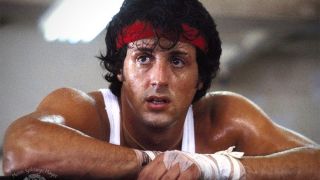
Here’s the most important thing to know if you’ve only seen the other, rubbish Rocky movies: the first one actually is really good. In fact, it’s probably second only to Raging Bull in the sport film stakes. It builds up to a glitzy, engaging finale, and then ends in a satisfying and unexpected way. Rocky doesn’t win the brawl - It’s much more about Rocky defeating his personal demons than Apollo Creed, which he doesn’t actually do (and hey, he beats him in Rocky 2 anyway). A fascinating, small story, hidden behind the glamour of the American Dream, full of encouraging messages about never, ever giving up.
Key things to mention: The famous meat-punching training regime was actually invented and practised by boxer Joe Frazier, who also has a cameo in the film.
Memorable quote: “Adriaaaaan! Adriaaaaaaan!”
Matt Elliott
12DOVE was first founded in 1999, and since then has been dedicated to delivering video game-related news, reviews, previews, features, and more. Since late 2014, the website has been the online home of Total Film, SFX, Edge, and PLAY magazines, with comics site Newsarama joining the fold in 2020. Our aim as the global GamesRadar Staff team is to take you closer to the games, movies, TV shows, and comics that you love. We want to upgrade your downtime, and help you make the most of your time, money, and skills. We always aim to entertain, inform, and inspire through our mix of content - which includes news, reviews, features, tips, buying guides, and videos.

